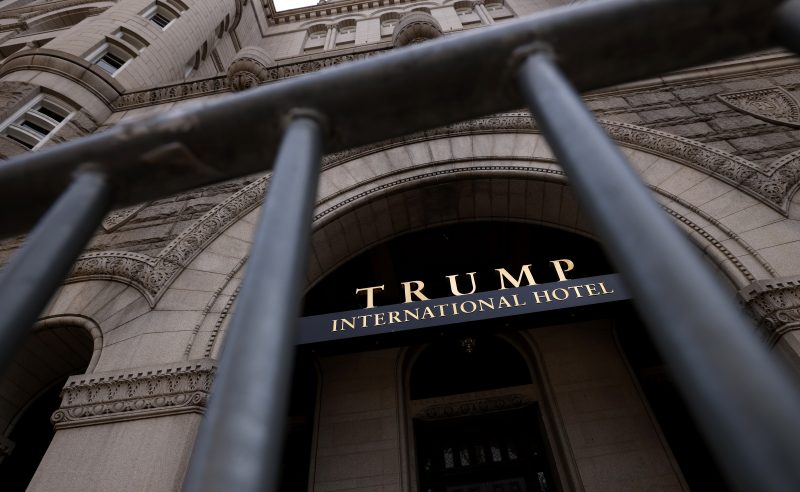In the latest development surrounding the Trump Organization, a report released by House Democrats sheds light on allegations of overcharging the Secret Service for accommodations at the former president’s hotel in Washington, D.C. This revelation has raised concerns and sparked debates over the potential financial improprieties and conflicts of interest within the Trump administration.
The report, based on the findings of a nearly two-year investigation, reveals that the Secret Service was billed excessively for the rental of rooms and event spaces at the Trump International Hotel. According to the House panel, the agency incurred costs far beyond the government’s per diem spending limits, resulting in hundreds of thousands of dollars in excess charges.
By exploiting the inflated rates, the Trump Organization may have reaped substantial profits from the federal government through the Secret Service’s protective duties. This arrangement has drawn criticism for potentially violating the Domestic Emoluments Clause of the Constitution, which prohibits the president from receiving payments beyond his official salary.
Moreover, the House Democrats’ report underscores the potential security risks associated with the Trump hotel’s exorbitant pricing practices. The Secret Service’s limited budget could have been stretched thin due to the overcharges, compromising its ability to fulfill its mission of safeguarding the president and other protected individuals effectively.
The revelations surrounding the Trump hotel’s billing practices highlight broader concerns about conflicts of interest and abuse of power in the previous administration. Critics argue that such financial entanglements between the president’s business interests and government agencies undermine the principles of transparency, accountability, and ethical governance.
In response to the report’s findings, the Trump Organization has denied any wrongdoing, dismissing the allegations as politically motivated attacks. Supporters of the former president have rallied behind him, asserting that the scrutiny of his business dealings is part of a broader partisan agenda to discredit him.
As the controversy surrounding the overcharging of the Secret Service unfolds, it underscores the enduring challenges of ensuring ethical conduct and accountability in government. The House Democrats’ report serves as a reminder of the importance of upholding integrity and adherence to the rule of law, particularly in cases where public officials wield significant power and influence.
Moving forward, the revelations from this investigation are likely to fuel ongoing debates about the intersection of politics, business, and ethics in American governance. As the country grapples with the implications of these findings, the need for robust oversight, transparency, and adherence to constitutional norms remains paramount in safeguarding the integrity of public institutions.
